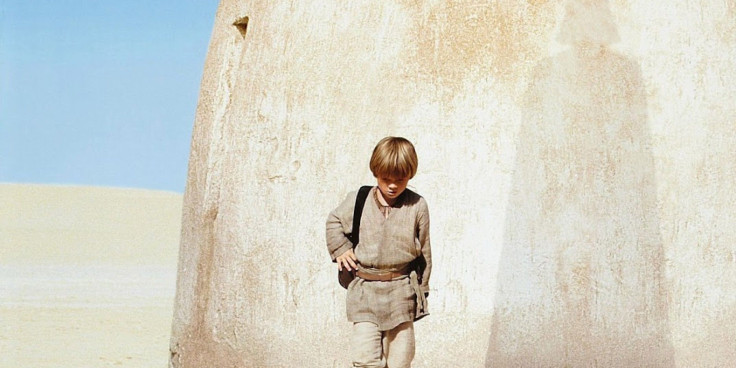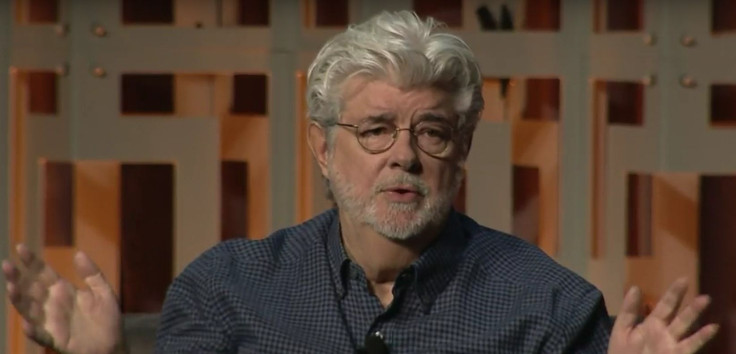George Lucas Says ‘Star Wars’ Is 'A Film For 12-Year-Olds,’ But Don’t Take It Personally

After a montage celebrating 40 years of fandom and a heartfelt introduction from Lucasfilm president Kathleen Kennedy, the 2017 Star Wars Celebration opened with George Lucas himself. As the writer and director of 1977’s "Star Wars," one of the foundational stories of the 20th century, Lucas was the lodestar for the sprawling franchise (for better and worse) until Disney’s 2012 Lucasfilm buyout that paved the way for "Star Wars: The Force Awakens," "Rogue One" and this year’s "Star Wars: The Last Jedi." He’s also a reliably off-message curmudgeon, making his on-stage interview with Warwick Davis (who began his acting career as Wicket in "Return of the Jedi") a highlight of the carefully choreographed and relentlessly bubbly "Star Wars" fan event.
Lucas spun an origin story for "Star Wars" that sheared away the romanticism of its instant blockbuster success, describing its rough road to screen after his first movie, "THX 1138," found more cult success than revenue. Lucas described how exciting it could be to make a multi-picture deal, only to later learn that “they own you” and can quickly marginalize directors who fail to make money.
He finally sold producers on "Star Wars," pitching it as “a high adventure film like that I loved as a kid, but with meaningful psychological themes.” But surely his description of the movie as “dogs driving spaceships” must have played a part.
Lucas was just as surprised as the studios that it worked. “I don’t know what I felt, it was a really cockamamie film,” Lucas said. Plowing through revision after revision — “Even when I was shooting in Tunisia I was still rewriting” — Lucas struggled to imbue Star Wars with “mythological and psychological motifs” while holding on to its pulp sci-fi roots.
But it was Lucas’ description of his target audience for "Star Wars" that most enlightens the themes of the series, even if his declaration defies our modern understanding of the saga's place in the cinematic canon. “I’m not supposed to say this and I wasn’t supposed to say this then,” Lucas said. “It’s a film for 12-year-olds.”

It’s not the first time Lucas has voiced similar sentiments, but at Star Wars Celebration he clarified at length what he means and why fans shouldn’t necessarily take it as an insult. “ I really wanted to take the values — the teachings of one generation — and move it to another,” Lucas said.
His intention is not to say that "Star Wars" is for babies, as he’s so often read, but that the film is meant as a guide into adulthood. “You’re 12 years old… you’re about to enter the real world,” Lucas said. “Here’s some of the ideas you should pay attention to: friendship, honesty, trust and doing the right thing. Living on the Light Side, avoiding the Dark Side. Those are the things it was meant to do.”
What could be controversial about that?
But Lucas’ noble aspirations for the original "Star Wars" have become his excuses for the failures of his later prequel films. He described children mobbing one of his "Attack of the Clones" location shoots in Spain. “None of it makes any difference, except that,” Lucas said. “In the real world, the critics, certain fans and things, they aren’t very kind.”
© Copyright IBTimes 2024. All rights reserved.





















